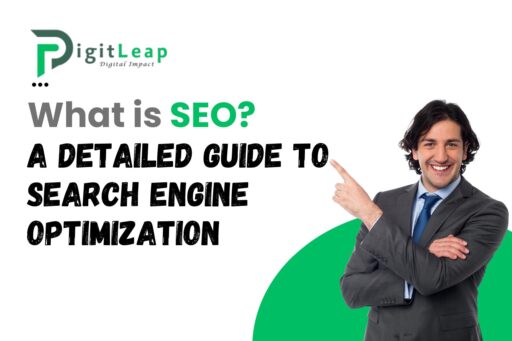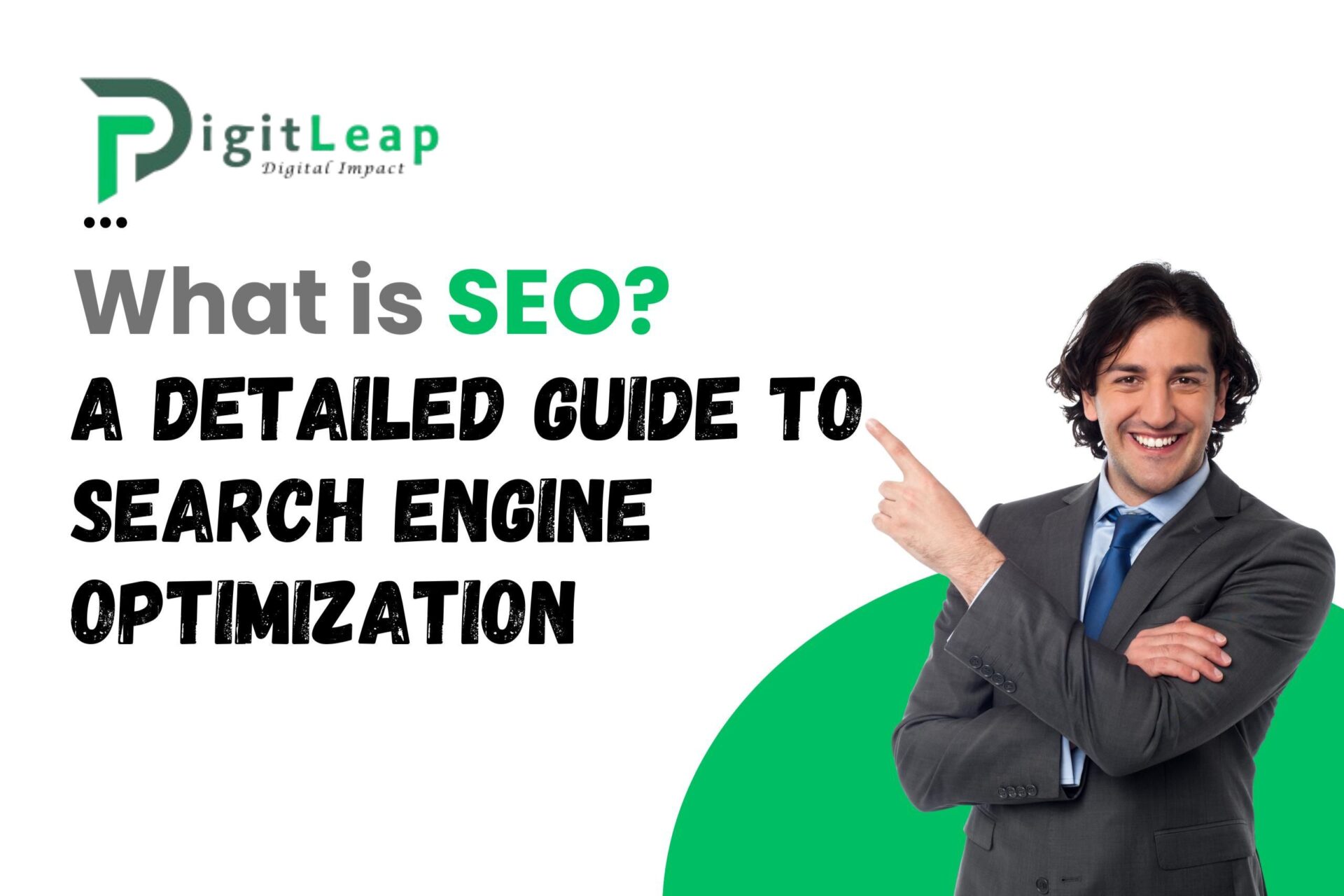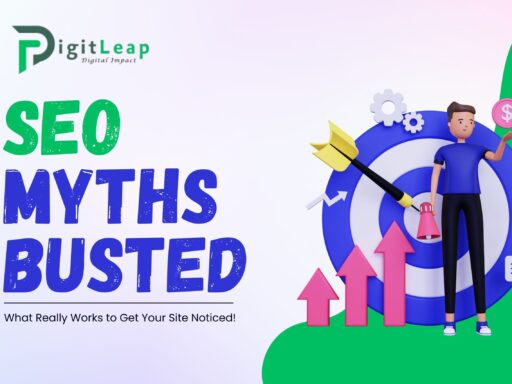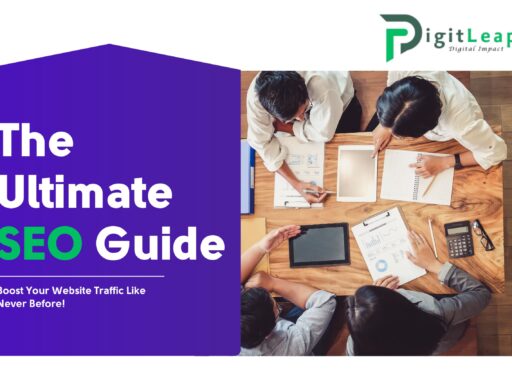What is SEO? A Detailed Guide to Search Engine Optimization
SEO, or Search Engine Optimization, is a powerful digital marketing strategy aimed at improving your website’s presence in search engine results pages (SERPs). The goal is simple: to get your site noticed by more people by appearing higher when they search for relevant terms. Think of SEO as the art and science of making your website more attractive to search engines like Google, Bing, and Yahoo, so they rank it higher than millions of other pages.
How SEO Works: The Fundamentals
SEO works by optimizing various aspects of your website to make it more appealing to search engines. It involves several techniques and practices that ensure your site provides value, is easy to navigate, and meets the criteria set by search engines. Here’s a closer look at the main components:
1. On-Page SEO: Optimizing Your Website’s Content and Structure
On-Page SEO focuses on everything that happens directly on your website. This includes optimizing your content, HTML code, and the overall user experience. Key elements include:
- Keyword Optimization: Using relevant keywords that people are searching for helps your content align with what your audience needs. It’s about strategically placing keywords in titles, headings, meta descriptions, and throughout your content to ensure search engines recognize the relevance of your page.
- Content Quality: High-quality content that answers users’ questions is crucial. This includes blog posts, articles, and product descriptions that are informative, engaging, and well-structured. Your content should be original, provide value, and include visuals like images or videos to enhance user engagement.
- Meta Tags and Descriptions: These are snippets of text that describe a page’s content. Optimizing your meta titles and descriptions can improve click-through rates from search results, enticing more people to visit your site.
- URL Structure: Clean, descriptive URLs help search engines understand the content of your page. For instance, a URL like www.yoursite.com/seo-tips is better than a long, messy one filled with random characters.
2. Off-Page SEO: Building Authority and Trust
Off-Page SEO is all about actions taken outside your website to improve your site’s ranking. This primarily involves building backlinks, which are links from other reputable websites that point to your site. Here’s what it entails:
- Link Building: Quality backlinks act as endorsements from other websites, signaling to search engines that your site is credible and authoritative. The more high-quality links you have, the more likely you are to rank higher in search results.
- Social Media Marketing: Sharing your content on social media platforms can drive traffic to your site and increase its visibility. Engaging with followers, responding to comments, and sharing updates can build a strong online presence.
- Guest Blogging: Writing articles for other websites helps you reach a broader audience while earning valuable backlinks to your site. This not only boosts your authority but also drives traffic from different sources.
3. Technical SEO: Enhancing the Backend Performance
Technical SEO focuses on the technical aspects of your website that affect how search engines crawl and index your pages. This ensures that your site is fast, secure, and easy to navigate. Key factors include:
- Website Speed: Faster websites provide a better user experience and are favored by search engines. Optimizing images, using browser caching, and minimizing CSS and JavaScript can help speed up your site.
- Mobile-Friendliness: With more people using mobile devices to browse the web, having a mobile-friendly site is crucial. This means your website should be responsive, adjusting seamlessly to different screen sizes and devices.
- Secure Sockets Layer (SSL): SSL certificates make your site more secure, especially when handling sensitive information. Sites with SSL have “https” in their URL and are preferred by search engines.
- XML Sitemaps: Sitemaps help search engines understand your website’s structure, making it easier for them to index your pages. It’s like a roadmap that guides search engines to your most important content.
Why is SEO Important for Your Business?
SEO plays a critical role in your business’s online success. Here’s why:
- Increased Visibility and Traffic: The higher your site ranks, the more traffic you’ll receive. SEO helps drive organic (free) traffic to your site, which can result in more leads, sales, and revenue.
- Builds Credibility and Trust: Appearing on the first page of search results boosts your brand’s credibility. People trust search engines, so when your site ranks high, users are more likely to see you as a trusted source.
- Improves User Experience: Good SEO isn’t just about search engines; it’s also about creating a better experience for your visitors. By improving site speed, navigation, and content quality, you ensure that users stay longer on your site, reducing bounce rates.
- Cost-Effective Marketing: Unlike paid ads, SEO targets users who are actively searching for your products or services. This makes it one of the most cost-effective marketing strategies, as it brings in high-quality traffic without the ongoing costs of paid advertising.
- Long-Term Results: SEO is a long-term strategy. While paid ads stop working once you stop paying, the effects of SEO can last for years with ongoing efforts. Consistently updating your content and optimizing your site will help maintain and improve your rankings.
Adapting to the Changing SEO Landscape
SEO isn’t static; it evolves with changes in search engine algorithms and user behavior. The rise of voice search, AI-driven results, and mobile-first indexing are just a few trends shaping the future of SEO. Staying updated with these changes and adjusting your strategies is key to maintaining your competitive edge.
Conclusion
SEO is more than just a set of tactics; it’s an essential part of any business’s growth strategy in the digital age. By investing in SEO, you’re not just improving your website’s search ranking—you’re enhancing your brand’s visibility, credibility, and overall user experience. As the digital landscape continues to evolve, mastering SEO will be crucial to reaching and engaging your target audience.
FAQ’s
1. What is SEO and why is it important?
SEO, or Search Engine Optimization, is the process of optimizing your website to improve its visibility in search engine results. It’s important because higher visibility leads to more organic traffic, which can result in more leads, sales, and brand recognition.
2. How long does it take to see results from SEO?
SEO is a long-term strategy, and results can vary depending on factors like competition, keywords, and the quality of your optimization efforts. Typically, you may start to see noticeable improvements in 3 to 6 months, but achieving top rankings can take longer.
3. What are the main components of SEO?
SEO consists of three main components:
- On-Page SEO: Involves optimizing content, keywords, and site structure directly on your website.
- Off-Page SEO: Focuses on building authority through backlinks and external signals.
- Technical SEO: Deals with backend elements like site speed, mobile-friendliness, and security.
4. What are keywords in SEO?
Keywords are specific words or phrases that people use when searching for information online. In SEO, using relevant keywords in your content helps search engines understand the topics your site covers, improving your chances of appearing in search results.
5. How do I choose the right keywords for my website?
Choosing the right keywords involves understanding your audience and using tools like Google Keyword Planner to find terms with high search volume and low competition. Focus on keywords that are relevant to your business and align with what your potential customers are searching for.
6. What is the difference between organic and paid search results?
Organic search results are listings that appear due to their relevance to the search terms, without any payment. Paid search results, on the other hand, are advertisements that appear at the top or bottom of the search results, marked as “Ad” or “Sponsored.”
7. Can I do SEO on my own, or do I need to hire a professional?
You can start basic SEO on your own by optimizing content, using keywords, and improving your site’s user experience. However, hiring a professional or agency can provide advanced strategies and save you time, especially if you’re competing in a highly competitive market.
8. What is link building in SEO?
Link building is the process of acquiring hyperlinks from other websites to your own. These links act as endorsements, showing search engines that your site is credible and authoritative. High-quality backlinks can significantly improve your site’s ranking.
9. How does mobile-friendliness affect SEO?
Mobile-friendliness is crucial for SEO because search engines prioritize websites that offer a good mobile experience. With most users accessing the internet via mobile devices, having a responsive, mobile-friendly design can boost your site’s ranking.
10. What is a meta description, and why is it important?
A meta description is a short summary of a webpage that appears under the title in search results. While it doesn’t directly impact ranking, a well-written meta description can improve click-through rates, encouraging more users to visit your site.
11. How does site speed impact SEO?
Site speed is a critical factor in SEO because it affects user experience. Slow-loading sites tend to have higher bounce rates, leading to lower rankings. Optimizing images, leveraging browser caching, and minimizing code can help improve your site’s speed.
12. Is content quality important for SEO?
Absolutely! Quality content that provides value to users is essential for SEO. Search engines favor websites that deliver relevant, informative, and well-written content. Regularly updating your site with fresh content can also help maintain and improve your rankings.
13. What is an XML sitemap, and do I need one?
An XML sitemap is a file that lists all the pages of your website, helping search engines crawl and index your content. It’s especially useful for larger sites or those with complex navigation. Having an XML sitemap can improve your SEO by ensuring that search engines find all your important pages.
14. How often should I update my website for SEO?
There’s no fixed rule, but regularly updating your site with fresh content, fixing errors, and improving existing pages can keep your SEO efforts effective. Aim to review your SEO strategy every few months and make adjustments based on performance data.
15. Can SEO guarantee top rankings on Google?
No, SEO cannot guarantee top rankings because search engine algorithms are constantly changing, and rankings depend on numerous factors, including competition and user behavior. However, consistent and well-executed SEO strategies can significantly improve your chances of ranking higher.
16. What are Google’s algorithm updates, and how do they affect SEO?
Google’s algorithm updates are changes to the way Google ranks websites in search results. These updates aim to improve the quality of search results and can significantly impact SEO. Staying updated with these changes and adjusting your strategies is essential to maintain your rankings.
17. Is local SEO different from regular SEO?
Yes, local SEO focuses on optimizing your online presence to attract more business from relevant local searches. It includes strategies like optimizing your Google My Business profile, gathering local reviews, and ensuring your NAP (Name, Address, Phone number) is consistent across platforms.
18. How important is social media for SEO?
While social media signals (likes, shares, comments) do not directly impact SEO rankings, they can help increase your content’s visibility and drive traffic to your site, indirectly benefiting your SEO efforts.
19. Do I need to use SEO tools?
Yes, using SEO tools like Google Analytics, Ahrefs, or SEMrush can provide valuable insights into your site’s performance, keyword rankings, and areas for improvement. These tools can help you track your progress and refine your SEO strategy.
20. What is the future of SEO?
The future of SEO is likely to be shaped by advancements in AI, voice search, and changes in user behavior. Staying adaptable, focusing on creating high-quality content, and providing an excellent user experience will be key to thriving in the evolving SEO landscape.






